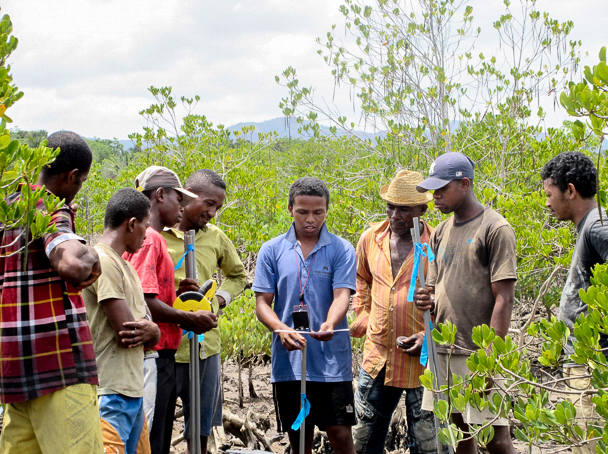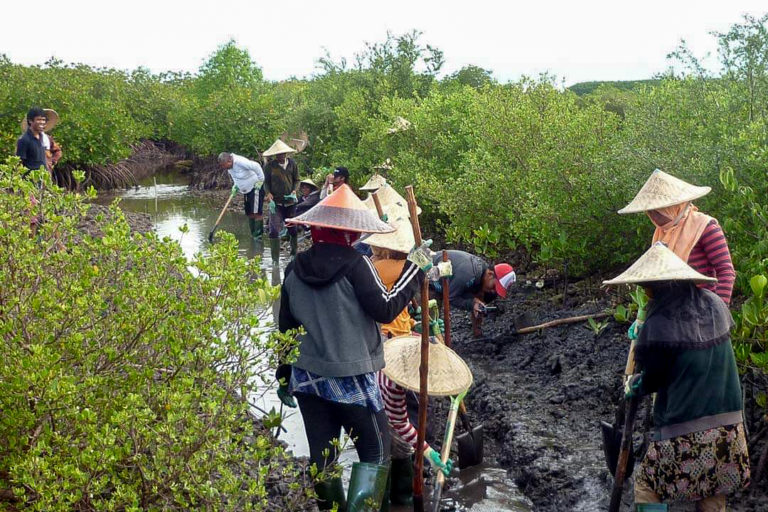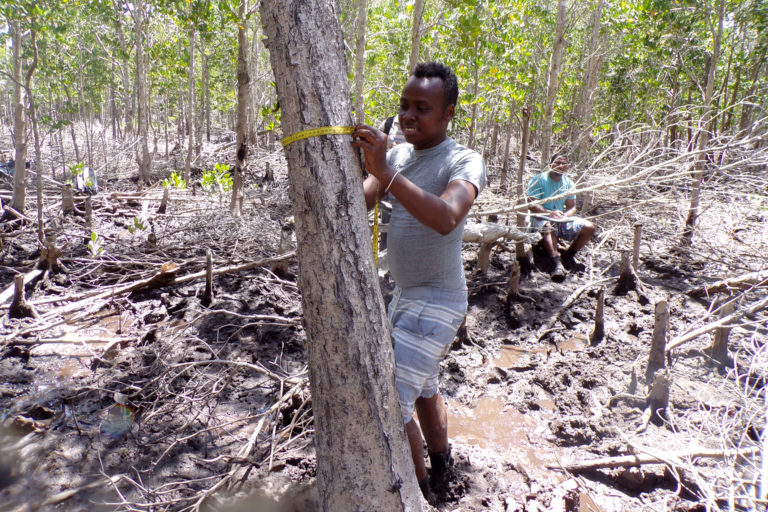Hooked
July 2021
Mangroves: frontline climate defenders
Mangroves are one of the most carbon-rich habitats on Earth, capable of storing five times as much carbon dioxide per hectare as typical tropical rainforest. Healthy mangroves are natural storm barriers that protect infrastructure against extreme storms and rising seas. They also support fisheries, sustaining the daily lives of tens of millions of coastal people. Yet we’re cutting and destroying mangroves faster than any other forest type on Earth.
On Monday, the International Day for the Conservation of the Mangroves, the Global Mangrove Alliance will publish a new report showing how governments and local communities can come together to restore these blue forests. In the report our team in Madagascar shares its experiences engaging communities in mangrove conservation. Keep an eye on our social media channels to find out more.
In this edition of Hooked, dive into muddy mangrove waters and learn about our work in blue carbon conservation.
In this edition of Hooked:
Don't miss
Catch of the day
Madagascar
Dany Ralaitianimaro and Lido Djaomanjaka are small-scale fishers in Madagascar. Their livelihoods depend on the ocean, and in particular, on mangroves. They’re leading efforts in their communities to monitor carbon stocks so that they can sell carbon credits, generating funding to support local mangrove conservation and much-needed community infrastructure.
What to read:

“Members of my community are involved in mangrove forest conservation and in a blue carbon offset project. Now we are seeing the benefits!”
In our net(work)
Indonesia
Meet Yayasan Hutan Biru (YHB), our partner organisation in Indonesia. Founded in Yogyakarta in 2011, YHB specialises in supporting communities that depend on mangroves and rivers to build resilience and identify ways to protect their ecosystems and livelihoods.
In cooperation with Yayasan Pesisir Lestari, we’re working with YHB in the mangrove-rich regencies of Indragiri Hilir and Kubu Raya to support communities to protect and restore mangroves at scale.
What to read:

“We believe that many mangrove restoration projects fail when the relevant decision makers aren’t included. For projects to be successful, the government institutions, the private sector, universities, NGOs, and community representatives must work together hand in hand.”
– Rio Ahmad, Director
Yayasan Hutan Biru
From the shore
Madagascar
Cicelin Rakotomahazo is our blue forests coordinator in southwest Madagascar and a driving force in the team that coordinated the Tahiry Honko mangrove conservation project. From a young age, he’s been passionate about protecting the environment and believes in the importance of supporting communities to develop good governance so that they can conserve Madagascar’s unique ecosystems and biodiversity.
Alongside his work with Blue Ventures, Cicelin is conducting PhD research in mangrove blue carbon. His research aims to highlight the importance of equity, transparency and community participation in blue carbon project development.
What to read:

“Mangroves serve as a bank for thousands of coastal communities in Madagascar. To manage this critical ecosystem sustainably and to establish effective local governance, the voice and perspective of people dependent on mangroves must be the priority.”
What we're watching
Action for the ocean
Explore the previous special edition of Hooked for World Oceans Week
Sign up for regular updates of Hooked
















